Feminism and Femininity in Broadway’s Waitress
Waitress, the new Broadway musical based on the 2007 movie of the same name, is as feminist as it is feminine. The show has received criticism asserting exactly the opposite, citing its pervasive femininity as something the show’s much-discussed all-female creative team should have managed to transcend. The show centers on Jenna (Jessie Mueller), a woman in an abusive marriage who escapes her reality by baking pies at the diner where she works as a waitress, concocting new recipes as metaphors for her life (for example, “Getting Out of the Mud Pie”). She is also pregnant, and hopes to use her baking talent to win a pie contest, the financial reward from which would allow her to leave her husband. Pies dominate the space—they frame the proscenium in spinning display towers; they’re sold at concessions in miniature; the smell of baking pies is pumped into the lobby pre-show; even the curtain is a pie.
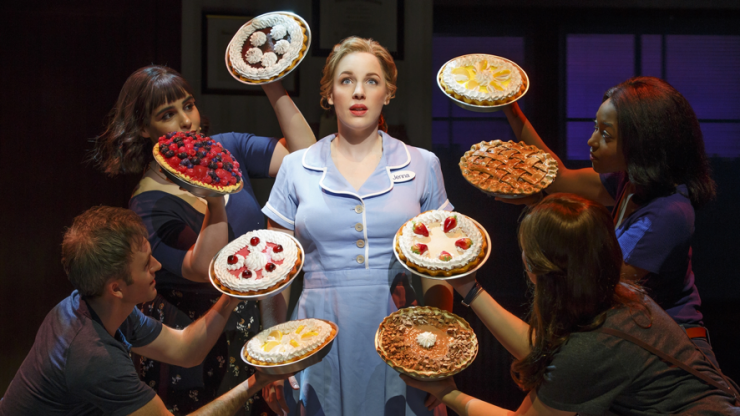
Obviously, femininity does not automatically equate to feminism, and Waitress, like any other piece of creative work, raises some questions. But it overwhelmingly puts forth portrayals of women who, to paraphrase the eleven o'clock number, are by turns messy, kind, lonely, reckless, scared, and strong—giving audiences a more satisfying and well-rounded experience than they normally get from female characters in musical theatre.
I’m shocked more critics have not found that a musical in which the men exist only in relation to the women does not constitute a failure, but a subversive and exciting choice.
The original film paints a bleak picture of deeply unhappy people working blue-collar jobs and passively hoping for, rather than actively seeking a way out of their circumstances. The musical gives the source material a bright coat of Broadway paint with an upbeat and gorgeous pop score by Sara Bareilles and lively direction by Diane Paulus that die-hard fans of the movie may feel cheapens the work by making light of a serious topic. However, the show does not gloss over the abuse Jenna suffers from her jealous and controlling husband Earl (Nick Cordero), an emotionally stunted man who she married as a teenager after her own father passed away. Their relationship follows a classic narrative of domestic abuse, familiar and accessible to audiences. Earl is an easy to hate villain, and Jenna easy to sympathize with, even as she has an affair with her gynecologist Dr. Pomatter (played by Drew Gehling). Although we never see physical abuse happen on stage, it is both threatened and suggested, and we do witness intense displays of verbal and emotional abuse. Earl takes every dollar that Jenna earns for himself, doesn’t allow her to have a car, and makes her promise him she won’t love her baby more than she loves him. Some have criticized this depiction of abuse as sanitized “caricature,” and seem to believe the audience would be more affected if they experienced a grittier reality, but I believe leaving it to the imagination affects audiences more than any stage combat choreography ever could.
Abuse features elsewhere in the musical, as Joe (Dakin Matthews), the diner’s owner, is overly demanding and bullies the waitresses enough that they argue over who will be forced to serve his table. Later in the show, he is revealed to be a big softie; always partial to Jenna, perceptive to her situation, and giving her advice throughout the show, Joe leaves the diner to her in his will when he passes away from surgical complications. Another relationship plays out with eyebrow-raising behavior between Jenna’s fellow waitress Dawn (Kimiko Glenn), and her suitor, Ogie (Christopher Fitzgerald), who she met online. Dawn approaches dating with extreme caution, so when Ogie shows up at the diner after their first date and refuses to leave until Dawn agrees to see him again, the audience cringes. Until, that is, Ogie sings the catchy and frustratingly funny “Never Ever Getting Rid of Me,” where Christopher Fitzgerald’s charm and comedic timing encourages the audience to disregard his disturbing behavior. Once Dawn gives in to Ogie, she discovers they have a lot in common and falls for him too. What message(s) are these relationships sending? Is abuse—however mild—erased or forgiven if it becomes a love story, or if the abuser in question seems non-threatening? In this way, Waitress establishes a confounding double standard about a serious issue that millions of women deal with daily.
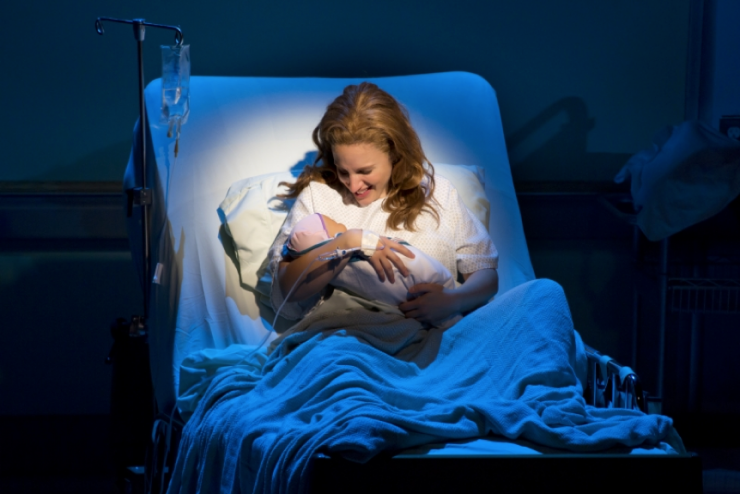
In Waitress, themes of motherhood loom large. Jenna’s beloved mother—the one who taught her how to bake—died when she was young. Now pregnant herself, Jenna fears raising the baby not only because of Earl, but because she doesn’t believe she would be the kind of mother she was lucky enough to have had. In one of the most emotionally raw scenes in the show, Jenna sings a song both to her late mother and about the influence she had. Some critics have suggested that the fear and lack of excitement Jenna expresses throughout her pregnancy indicate she vehemently does not want to have this baby. Going with this reading, it makes the scene when Jenna gives birth and finds herself instantly transformed by motherhood—enough to spontaneously leave her husband—feel inauthentic. I would argue, however, that Jenna, though scared, never waivers in her commitment to her child. Her desperation to find a way to leave Earl is further proof of her desire to protect and care for the baby. What is true is that Jenna has become so beaten down by Earl that she no longer sees herself as having any value or being good enough to be a mother. Jenna’s transformation after giving birth does not represent a drastic reversal, but rather presents a woman finding strength she forgot she had and a reason to use it.
What makes Waitress feminist by most contemporary barometers (Bechdel Test, anyone?) is the undeniably positive representation of its female characters. Jenna and her coworkers Becky and Dawn form a trio of close female friends who support each other in all decisions, good and bad. The first scene after the opening number features the three women talking in the diner’s restroom, where Becky and Dawn are trying to convince Jenna to take a pregnancy test— there’s even a song about waiting for the pregnancy test results. Each woman gets involved with a romantic (or at least sexual) plot—Dawn with Ogie, Becky with their boss at the diner—but more importantly, each woman is still fully defined, separately from a man. Each woman exercises her freedom to make good and bad choices, to get called out, and to prioritize her female friendships over fleeting romantic interests—this is powerful.
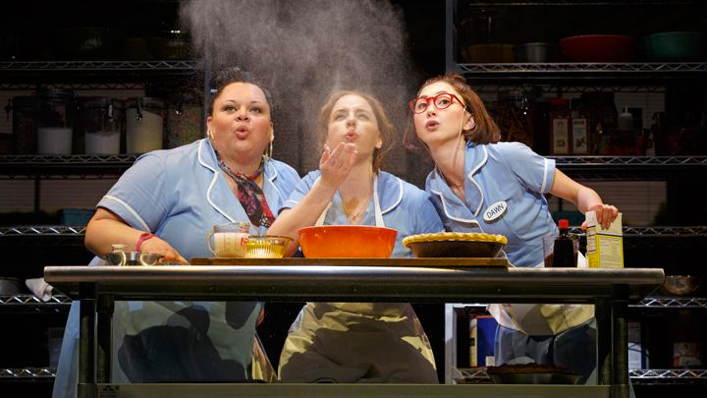
What’s more, the creators of Waitress have made a deliberate choice to invert traditional musical theatre norms to craft a more wholly feminist show. Audiences have been conditioned to expect a male protagonist with female characters, defined by their relationship to the protagonist, primarily relegated to the periphery. With three strong female characters at its center, Waitress pushes the men to the fringes. Reviews, while never identifying this switch in specific terms, have criticized the male characters—primarily Earl—as one-note, thankless, standard-issue, even inane. Some have suggested the show could have been improved if only we had been able to “see deeper into [Earl’s] anger and depression,” or have come to the conclusion that because Earl reads transparently as a villain, he “isn’t even abusive.” In a New York Times conversation piece between Alexis Soloski and Laura Collins-Hughes, Soloski says, “That the show is popular with female audiences mystifies me.” In a world filled with female characters who exist only in relation to the men on stage, I’m shocked more critics have not found that a musical in which the men exist only in relation to the women does not constitute a failure, but a subversive and exciting choice.
I hesitate to think the response to Waitress would have been the same had its creative team been primarily male; why are we harder on female creators, especially when it comes to a feminist reading of their work?
The production’s casting earns Waitress high marks too. Dawn and Becky, Jenna’s confidants and co-workers, are played by Kimiko Glenn and Keala Settle, respectively, both of whom are of Asian/Pacific Islander descent. Each has at least one solo number and significant parts in other songs, and each plays a character that feels like a whole person, not a cliché sidekick. In addition, the show’s ensemble is only 50 percent white. When other new musicals this season shamelessly cast exclusively white actors, the casting in Waitress feels significant, particularly when coupled with the excellent female representation overall.
While the different ways that Waitress addresses abuse raises valid questions, the value for female audiences in seeing domestic abuse portrayed truthfully on stage at all, let alone the strong female friendships, overwhelmingly outweighs the negatives. I hesitate to think the response to Waitress would have been the same had its creative team been primarily male; why are we harder on female creators, especially when it comes to a feminist reading of their work? If women were given the same freedom to fail—or if we stopped giving men pats on the back for effort—I am confident we would end up with a more feminist theatre.


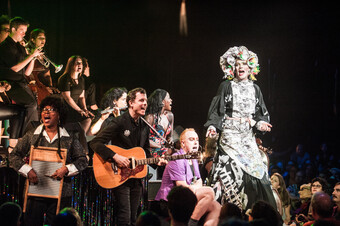

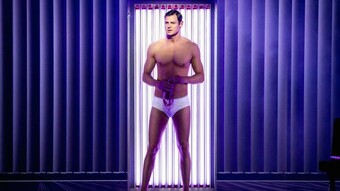

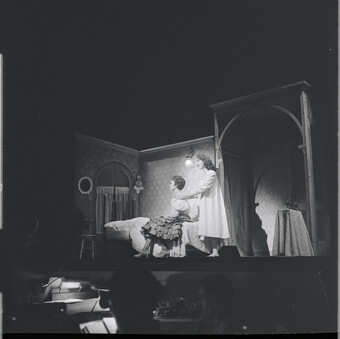


Comments
The article is just the start of the conversation—we want to know what you think about this subject, too! HowlRound is a space for knowledge-sharing, and we welcome spirited, thoughtful, and on-topic dialogue. Find our full comments policy here
I'm happy for the success of WAITRESS and agree that it is important to tell women's stories onstage, but the assertion that "traditional musical theatre norms" involve "a male protagonist with female characters, defined by their relationship to the protagonist, primarily relegated to the periphery" gives me pause. While plenty of musicals fit that description, plenty of others do not, including some of the most acclaimed and/or longest-running shows of all time: THE KING AND I, GYPSY, CHICAGO, MAMMA MIA, HAIRSPRAY, WICKED, to name a few. There's still room on Broadway for even more nuanced and interesting depictions of women, but in 2016, it seems a bit overstated to say that audiences are "conditioned to expect" a male protagonist when they go to see a musical.
I completely agree that there are a significant number of exceptions one could point to, many of which have been immensely successful, but I think the key distinction here is that Waitress tells a female story from a specifically female perspective. The shows you mention in your comment are by and large excellent musicals, but only one has a female writer (Winnie Holzman of Wicked, though I guess you could argue for the original female members of ABBA even though they didn't write for the stage). Additionally, I think simply the fact that the press has found the female-ness of Waitress noteworthy indicates that despite the existence and success of other female-driven musicals, audiences do still find it exceptional.
Just to add my second favorite musical of all time to Marissa's list of exceptions: THE SECRET GARDEN. Which garnered almost the exact reaction WAITRESS is garnering (as far as being considered a feminist achievement), largely due to its almost entirely female creative team, to the point where I often feel like I'm reading the same articles again, but for a show which I don't think is actually as good (though that's purely a matter of taste). I don't think it lessens the importance or impact of WAITRESS, but I do think it's important to point out that the trail it's blazing has been, if nothing else, mapped out in advance by predecessors whose achievements should also not be forgotten.
"Yay!" for the women that were involved in Waitress' creation, but it comes across as reductive of the creativity of theatrical design for Waitress' team to brag about having an "all female creative team" when the Set Designer, Lighting Designer, and Sound Designer are all (seemingly - from the Google bot) cisgender men. Looking forward to a Broadway show with a full female identifying/genderqueer/genderfluid creative team!
From what I've observed, it is not in any way the creative team themselves who have turned that into a talking point, but the press. You're correct that not literally every single person involved with the design of the show is female-identifying, but that doesn't alter the fact (and it is, indeed, a fact) that Waitress is the first Broadway musical with separate women as composer, book writer, director, and choreographer (I say separate because Liz Swados did all of those things for Runaways). Of course I also look forward to the day when every position is filled by women, but unfortunately we're still in a position where this is noteworthy to some degree.
Agreed that celebration is due for what Waitress has achieved. As the American theatre continues to work towards equity and representation in many areas, we should celebrate the milestones even as we remain unsatisfied and aim for larger goals. I also agree that the press has been the engine behind the promoting of Waitress' "all-female creative team." Still, it is important to recognize the creative worth of theatrical design and that designers are a part of the team. Gotta do what we can.
Bravo Danielle! The voice of a strong feminist! I like the juxtaposing of the film vs the musical and I also love the Sara Barellis score🎶!!